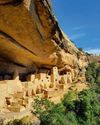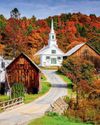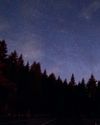
Chandigarh, located in India's far north, near the foothills of the mighty Himalaya, is a city that has the pleasing habit of upending all expectations. Thanks to a quirk of history, it was created as a kind of Modernist calling card, consisting of a grid of civic precincts, large parks and long roads. How this marvel of urban development became the showpiece city of post-partition India is a tale worth telling.
The origins of Chandigarh can be traced back to 1947, when the partition of British India divided Punjab between India and Pakistan. With Lahore, the existing state capital, ceded to Pakistan, the Indian half required a replacement. To that end, Jawaharlal Nehru, the first Prime Minister of Independent India, commissioned the creation of a brand-new 'planned city', one that would leave behind all colonial baggage and become a symbol of India's emergence as a modern, democratic, progressive nation.
To build his bold metropolis, Nehru tapped up American architect-planner Albert Mayer and Polish architect Matthew Nowicki in 1949. The duo's plan involved designing superblocks replete with green spaces that blended seamlessly with the natural terrain. However, with Nowicki's untimely death, Swiss-French architect Charles-Édouard Jeanneret, better known as Le Corbusier, was drawn into the project instead.
Le Corbusier harboured a distinct vision for the city, perceiving it as a human body. In his blueprint, the government complex took the centre stage as the head, the commercial area represented the heart, the green open spaces the lungs, while academic institutions and industrial areas were limbs, with roads criss-crossing them like arteries and veins. His innovative rectangular grid design fostered self-contained units, dividing the city into numbered sectors whose different eras show a change in ethos as urban design evolved across the decades.
This story is from the {{IssueName}} edition of {{MagazineName}}.
Start your 7-day Magzter GOLD free trial to access thousands of curated premium stories, and 9,000+ magazines and newspapers.
Already a subscriber ? Sign In
This story is from the {{IssueName}} edition of {{MagazineName}}.
Start your 7-day Magzter GOLD free trial to access thousands of curated premium stories, and 9,000+ magazines and newspapers.
Already a subscriber? Sign In

Vermont, USA
The Wanderlust team relocated to New England for part of this issue, as we explored a lush state filled with outdoor escapes, historic towns... and lashings of maple syrup

Unique North America
See a side to the USA and Canada beyond the big cities and discover incredible stories and special wildlife with our pick of the trips

The call of the Rockies
From historic ski lodges to rustic backcountry cabins and a mock-Scottish castle, we pick the stays in Canada's Rocky Mountains that make the most of their setting

A new dawn for the Garifuna community
When the Garifuna people settled in Belize, they had to carry their traditions and culture with them; now a new trail is inviting visitors to explore this heritage through local communities

On the edge of history
In south-west Colorado lies the largest archaeological preserve in the USA, a series of vast cliff dwellings whose residents 'vanished' overnight. But was the answer to their disappearance in plain sight?

Tigers burning bright
As India celebrates 50 years of its Project Tiger conservation scheme, we visit the reserves of Madhya Pradesh to see how its success has impacted a tiger population that once looked in danger of disappearing

SEASON'S GREETINGS
From fiery fall foliage to art fairs and harvest festivals, opens up a wealth of across the USA and Canada autumn experiences

Waking a sleeping GIANT
A slow drive along the North Wales Way, from the English border to Anglesey, reveals not only a land of incredible local food and castles, but a region that is slowly reimagining itself

The rebirth of old JEDDAH
As efforts to restore Al-Balad, Jeddah's historical district, take hold, we get an exclusive peek at how art and culture are taking centre stage

Star-studded escapes
Wilderness, history and wildlife combine at some of Britain's most iconic stargazing sites, as more and more travellers are looking to the heavens